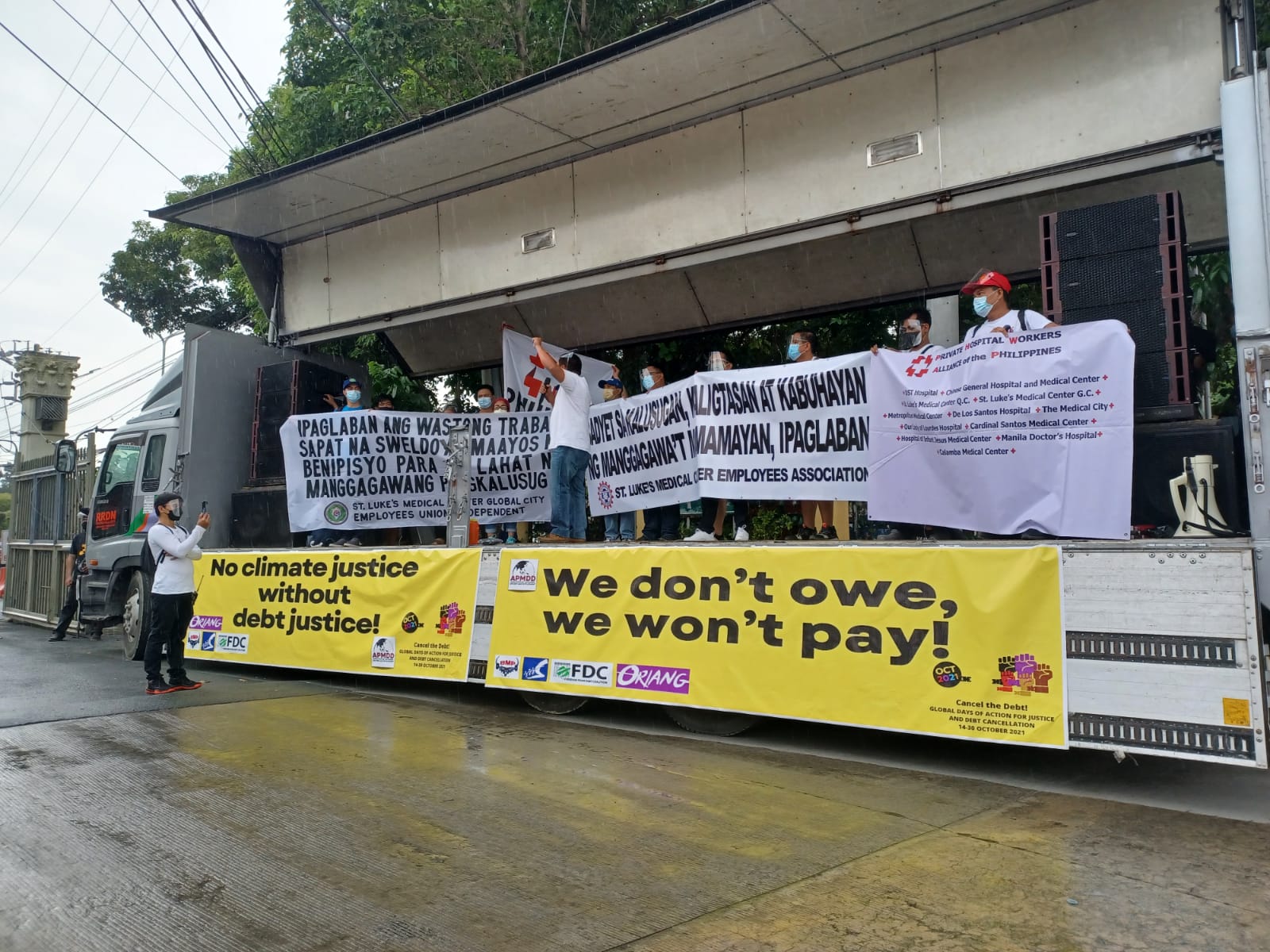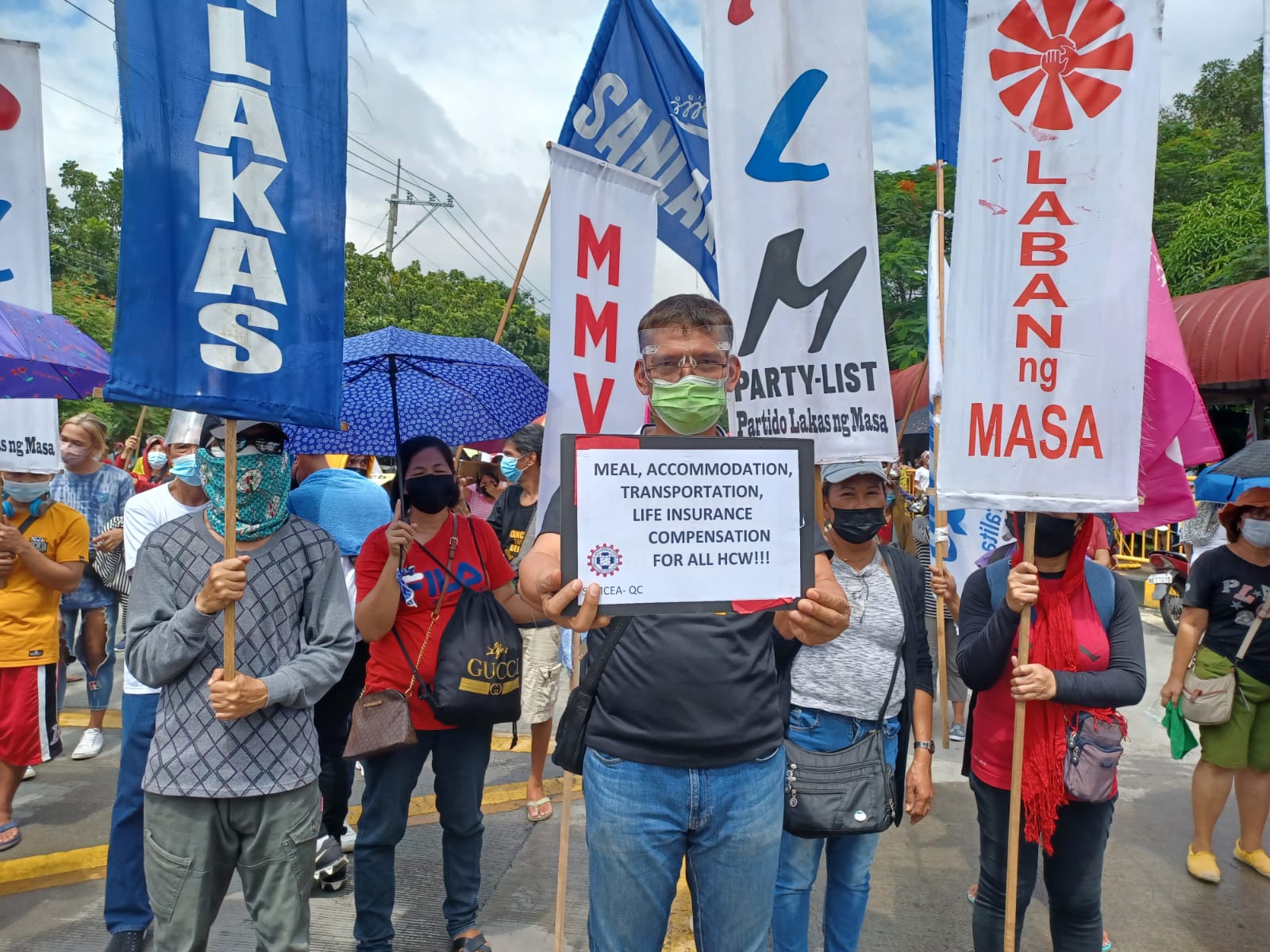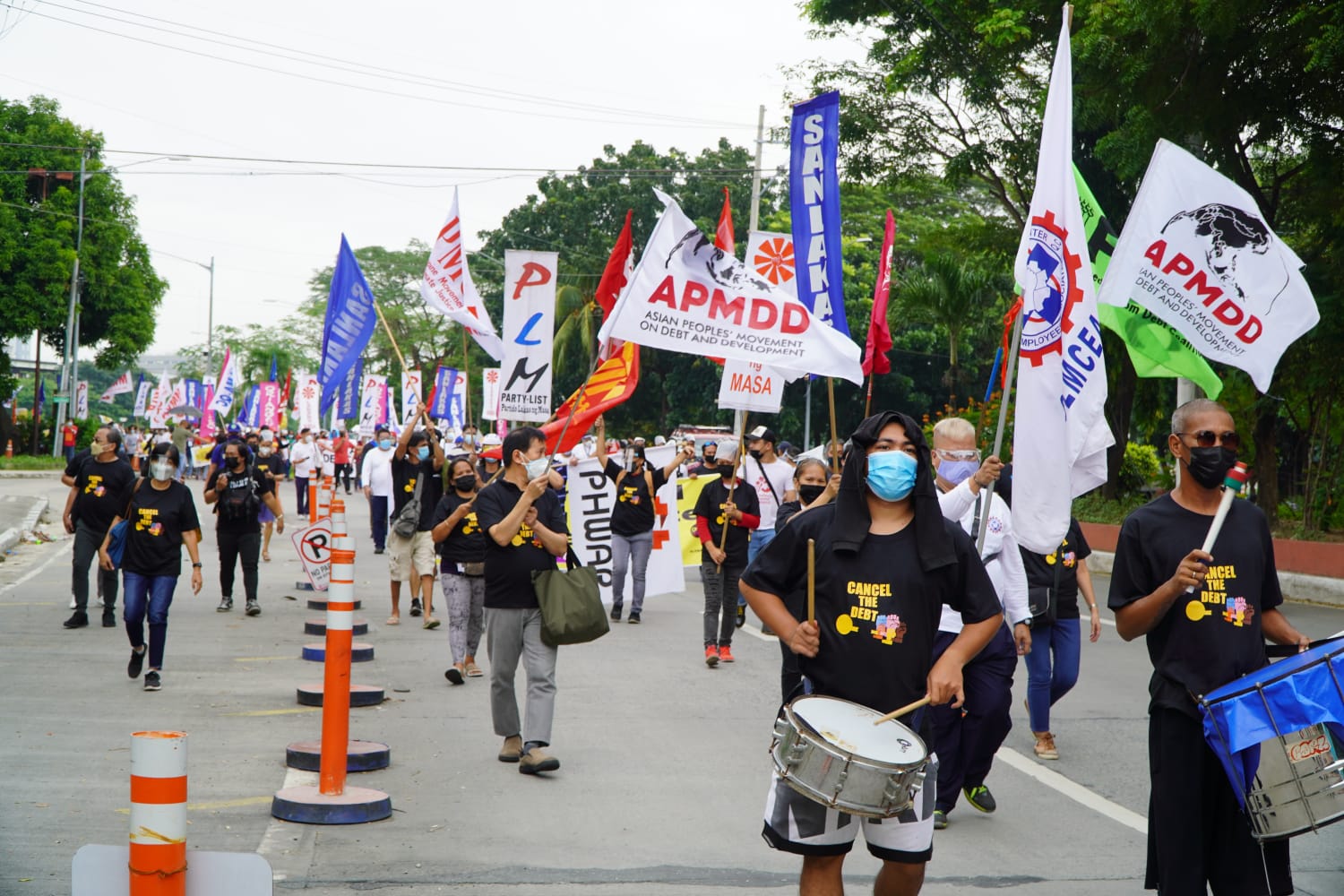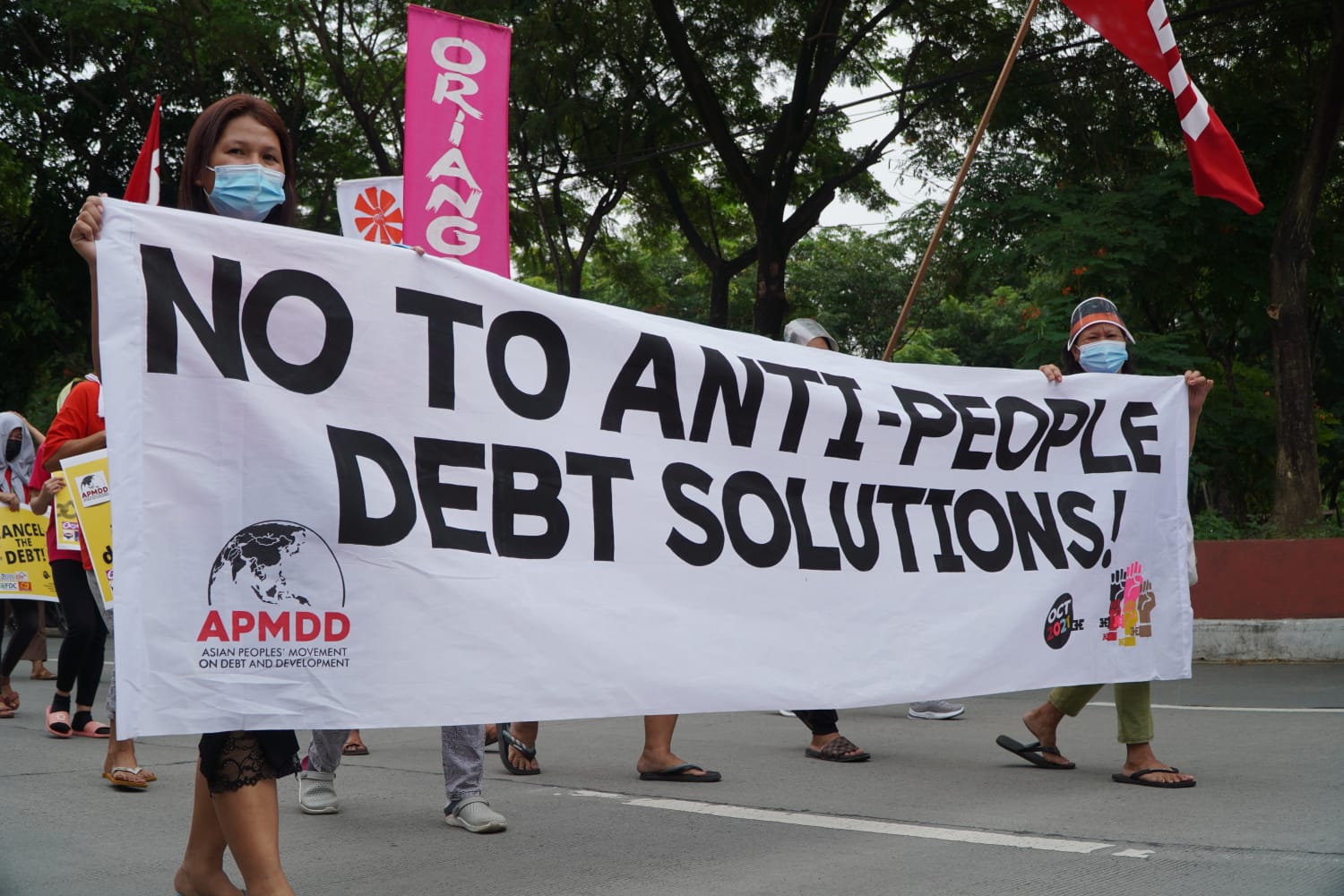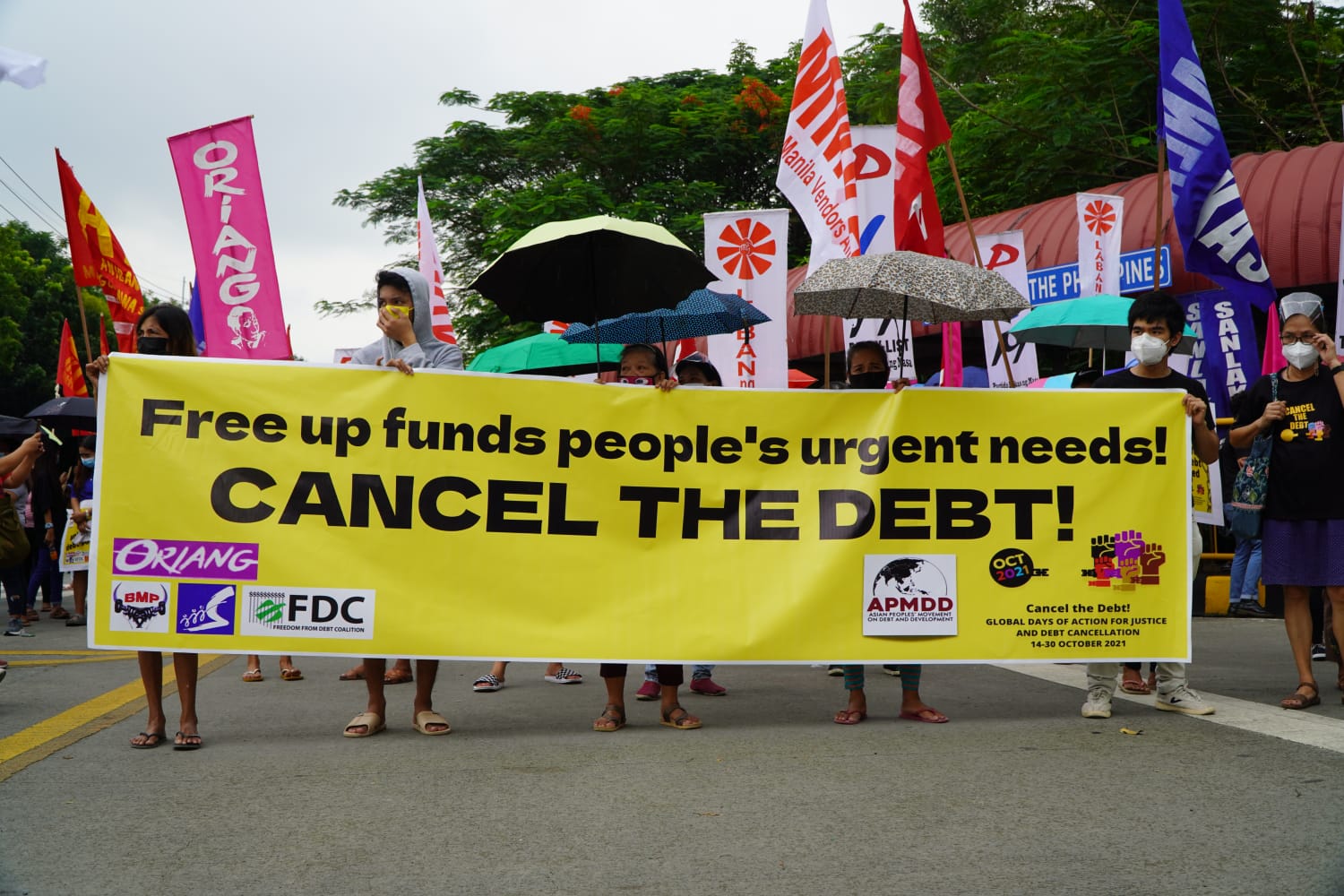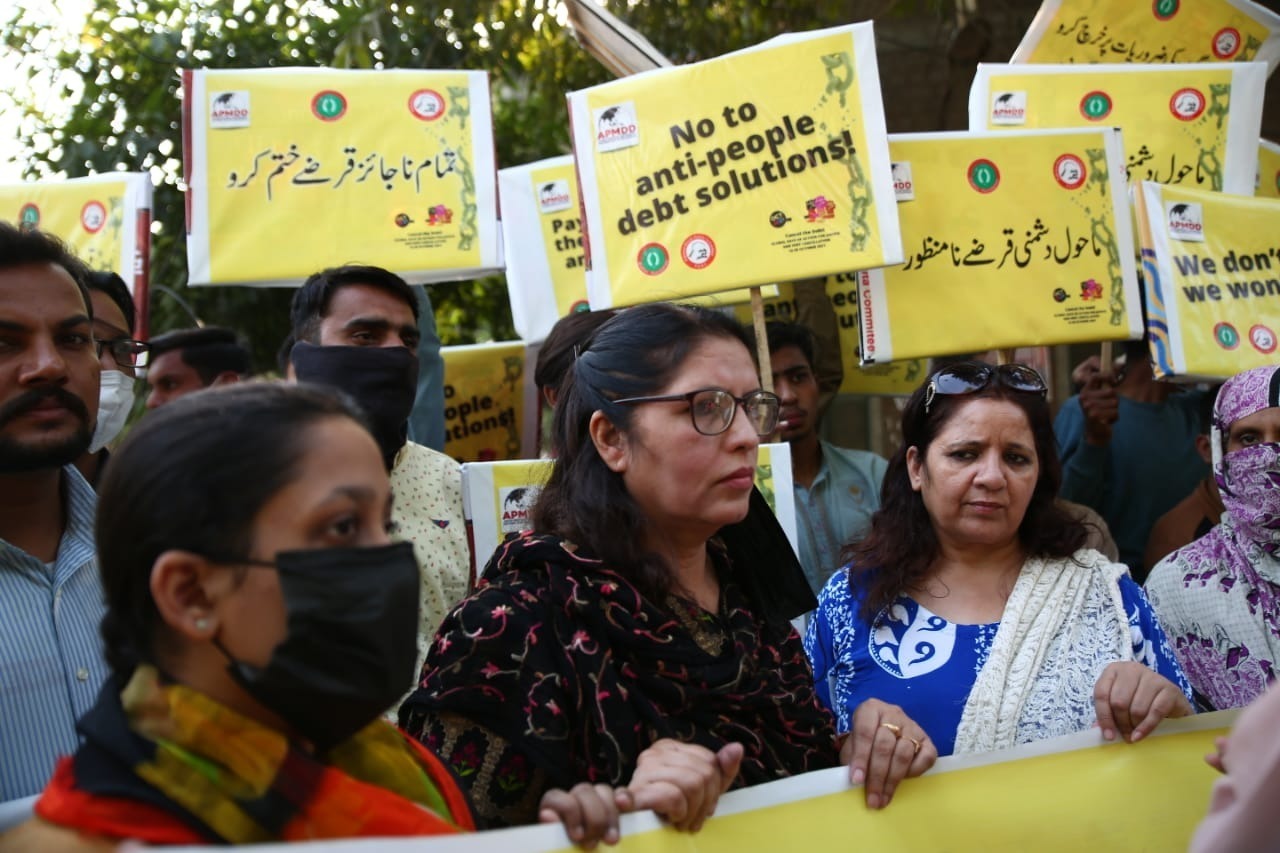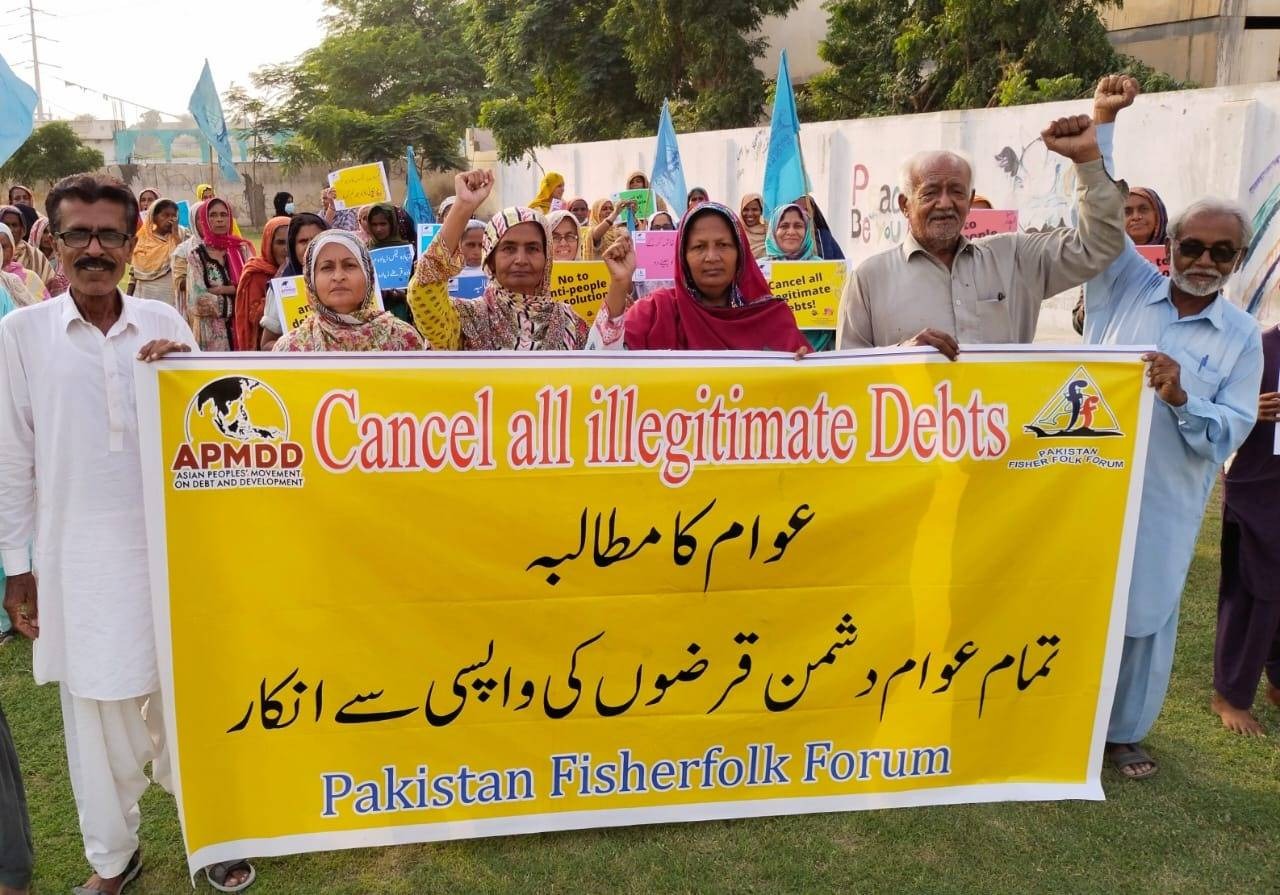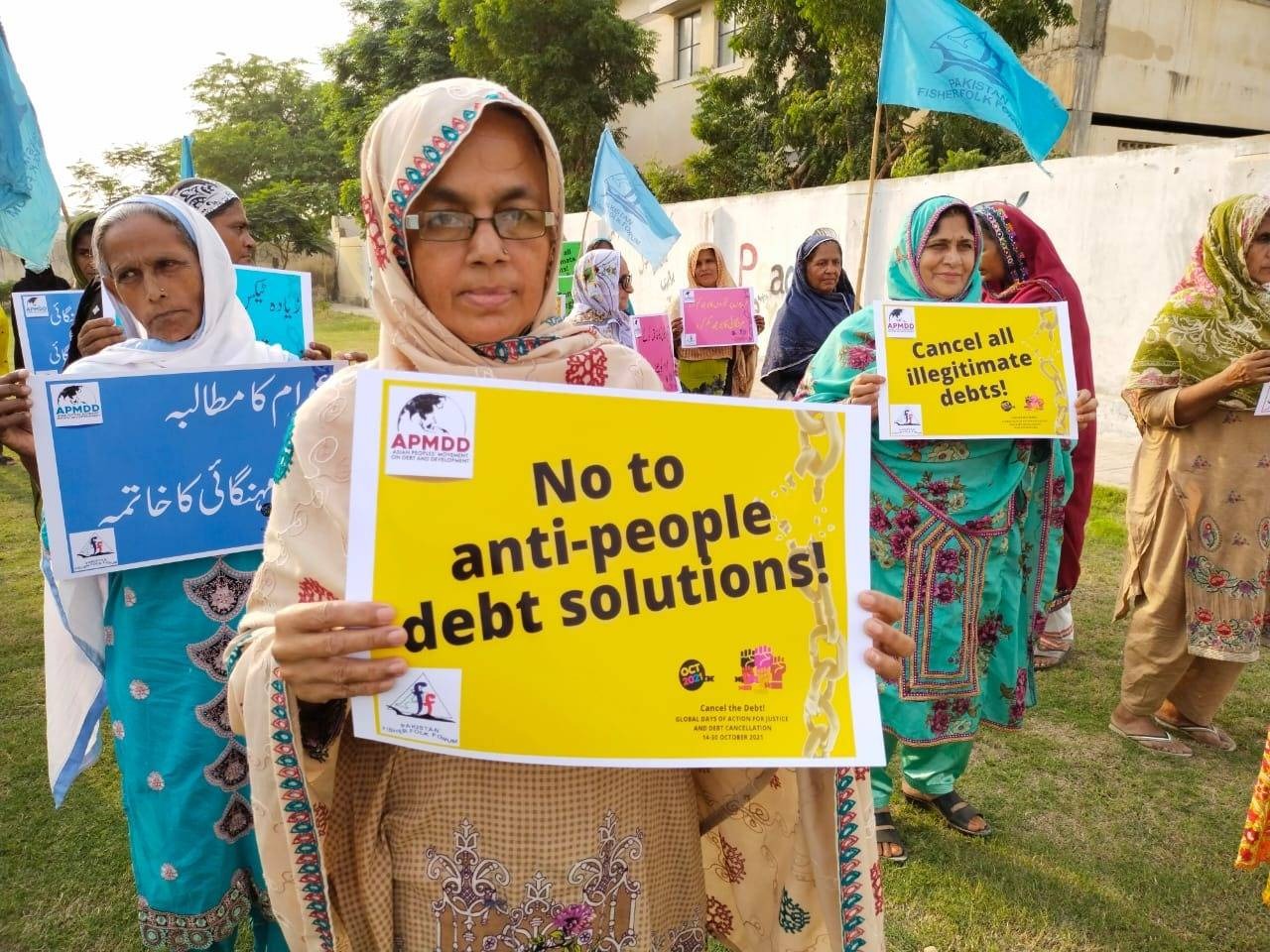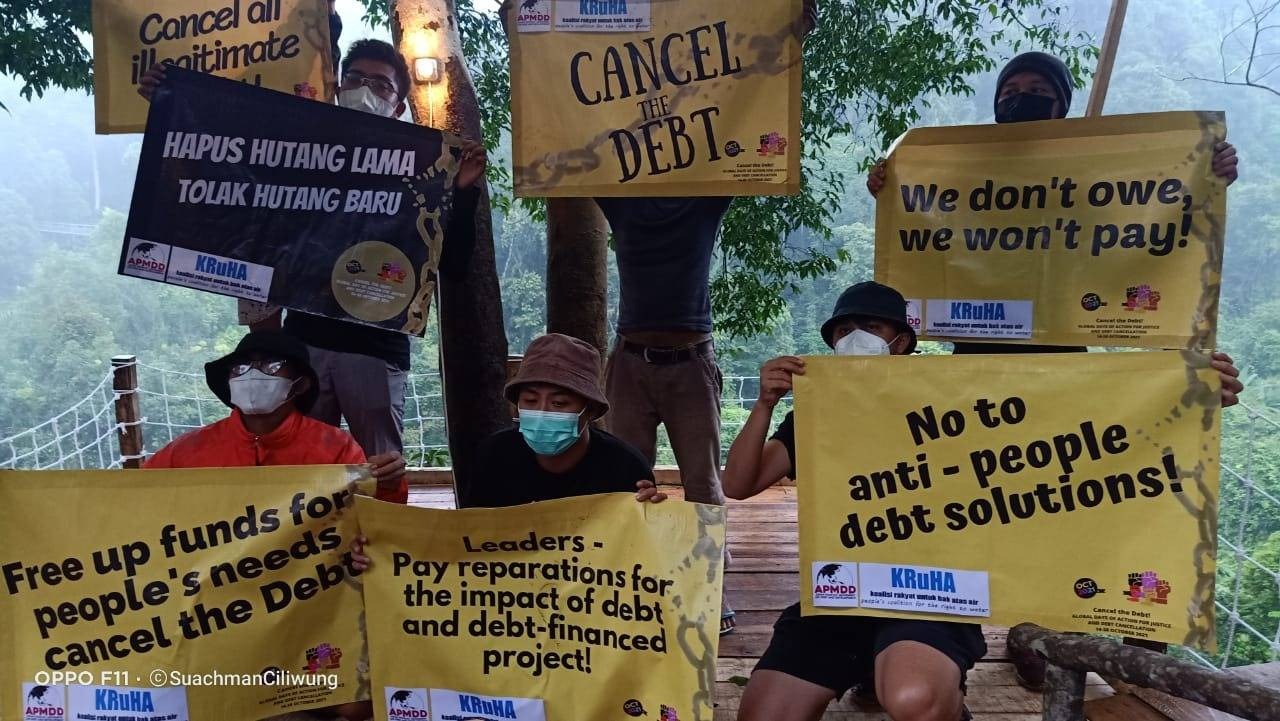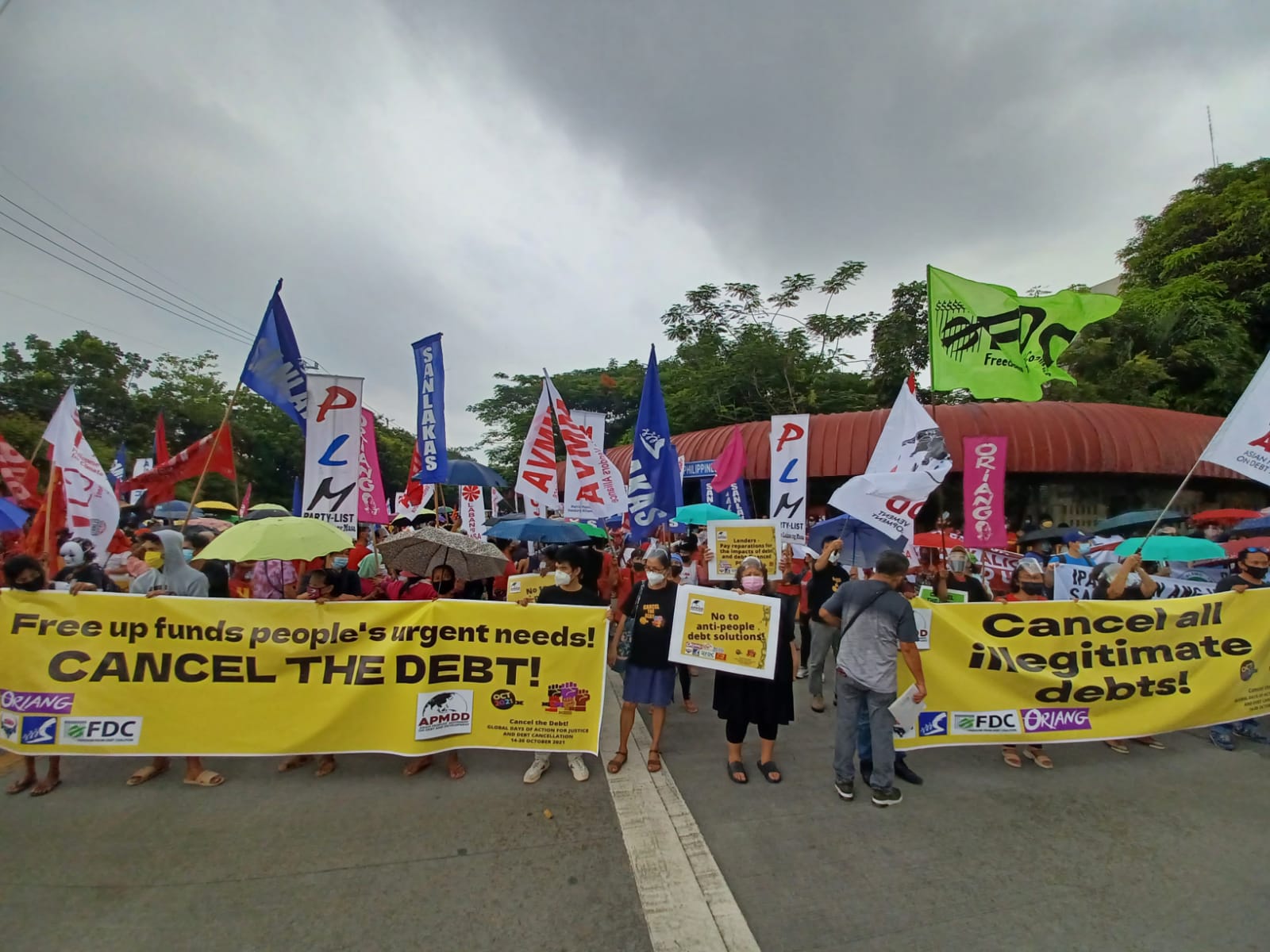

Drum-beating calls for debt cancellation, Asian groups stressed greater burdens on people and planet in the wake of the urgency of public funding for essential services, failed business-as-usual debt solutions, vaccine inequities, economic downturns and the climate crisis.
Manila, 28 October 2021— Calls for debt cancellation rang out from several Asian cities as members of the Asian Peoples’ Movement on Debt and Development (APMDD) marched on the streets today demanding that public funds go to people’s needs, and not debt service.
“The need to speak out is stronger and more urgent than ever, especially since the solutions imposed upon us by these lenders are leading us to deeper debt, poverty and inequality,” APMDD Coordinator Lidy Nacpil said.
APMDD and its members organized the coordinated activities as part of the Global Days of Action for Justice and Debt Cancellation from Oct. 14-30, an initiative supported by debt justice movements from around the world.
She noted the temporary and very limited debt suspension measures that end this year for low-income countries and the failure to address equally dire conditions in middle-income countries. “The backlash of resuming debt servicing will be severe. Add to that the payment of both old and news debts with the huge increase of lending since the global COVID pandemic began. There can be no genuine move towards rebuilding from the pandemic and the multiple crises without cancelling debt and freeing up financial resources for people’s survival.”
Leody de Guzman, Chairperson of the Bukluran ng Manggagawang Pilipino, asserted debt cancellation as a vital step towards a just socio-economic recovery and rebuilding. “We have long demanded the cancellation of debts, much of which is illegitimate for having enriched politicians, destroyed the environment and eroded local livelihoods.”
The Freedom from Debt Coalition pointed out the Automatic Appropriations Law, a Marcos legacy that holds to this day which prioritizes debt service in the budget, regardless of people’s needs. Coalition president Dr. Rene Ofreneo scored the law as “patently unjust when public money is urgently needed for adequate, sustained and long-term solutions to the multiple crises”. He added that “it must immediately be scrapped to shift people’s money into vaccines and public health, job creation and climate resilience.”
Secretary General of the national women’s movement, Oriang, Oyette Zacate highlighted debt cancellation as key to fulfilling women’s rights. “Women pay with their unpaid labor, when the government fails to amply finance public health systems because it puts debt service first before people and rights. Cancelling the debt can unlock public funds needed for the government to fulfill its obligation under the Magna Carta of Women to realize women’s rights.”
Manjette Lopez, president of the party-list organization SANLAKAS, said that “it’s high time to move away from business-as-usual and trickle-down economics approaches debunked by the pandemic ''. Instead of bailing out corporations and private lenders, “public money must fund a people’s stimulus where jobs are created, direct income support for affected individuals and households are given, and the budget for health doubled to re-build and strengthen the public health care system, particularly community-based primary health care.”
In other Asian cities, from Lahore, Farooq Tariq, General Secretary of the Pakistan Kissan Rabita Committee, scored the adverse impact of debt on social spending. “Where is the money for public services? Nearly half of our people live below the poverty line and about 70% have not yet been vaccinated against COVID19. Yet over $1 billion per month will be claimed from us in external debt payments until June 2023.” He noted the temporary debt suspension measures that end this year for low-income countries and the failure to address equally dire conditions in middle-income countries. “When the temporary debt suspension ends in December this year, we will feel the severe backlash of resuming debt servicing on top of new debts that the Pakistan government has incurred. Debt cancellation will unlock funds that should be used to raise urgently needed resources for people’s survival.”
In Karachi, other APMDD members scored the “perfect debt trap” of Pakistan. Saeed Baloch, Secretary General of the Pakistan Fisherfolk Forum (PFF) said: “We are trapped in debt servicing while ordinary working people are barely surviving. This has to change because lives are on the line. Debt cancellation is what we urgently need.” Baloch noted the temporary debt suspension measures that end this year for low-income countries and the failure to address equally dire conditions in middle-income countries.
In the Nepal capital of Kathmandu, Abishek Shrestha of the Digo Bikas Institute decried the limited debt suspension of the G20 that his country applied for. “What will happen in 2022, when we are obliged to return to servicing external debts? We have also incurred new debts that will likely bind us to social spending cuts at a time when our people need public health and social services.”
In Indonesia, Muhammad Reza Sahib of the People’s Coalition for the Right to Water (KRuHA) underscored the impact of debt and neoliberal policies pushed by the G20 and international financial institutions on local communities. “Indonesia, like other countries of the Global South, is trapped in the never-ending cycle of debt and water injustice, and this has all to do with the wholesale acceptance by our governments of the neoliberal policies championed by the G20, World Bank and IMF. Water privatization has led to the neglect of public systems and infrastructure and made us more vulnerable to COVID-19 so we say no more to these injustices, we do not owe these loans, and we should not pay them.”
